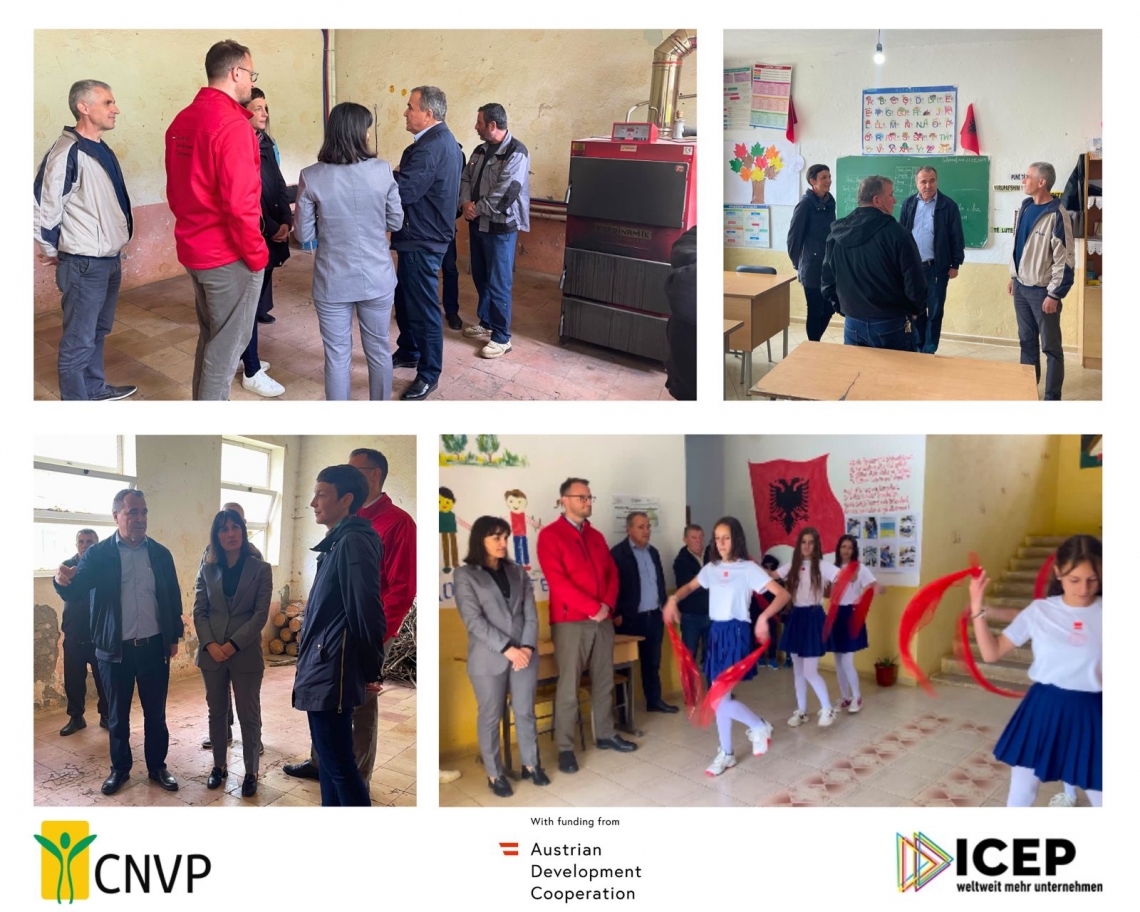News
Austrian Ambassador Visits Qerret's School in Puka

We had the honor of welcoming H.E. Monika Zachs, Austrian Ambassador to Albania, along with representatives from the Austrian Development Agency (ADA), during an official visit to the Qerret secondary school in Puka. The visit was part of a broader field mission organized by CNVP Albania under the framework of the Integrated Forest Management along the Transboundary Drin River Basin project.
The Qerret school, which currently serves 36 students from nearby villages, recently benefited from the installation of a central heating system powered by wood biomass, replacing outdated and inefficient stoves that previously heated only one classroom at a time. Funded by ADA, implemented by CNVP Albania and initiated by ICEP – Association for Global Development, this initiative aims to provide both environmentally sustainable solutions and improved learning conditions for rural students.
Upon arrival, Ambassador Zachs and the ADA delegation were warmly welcomed by the students with a vibrant display of traditional music and folk dances. The children staged a heartfelt cultural performance that celebrated local heritage and hospitality, creating a meaningful and joyous start to the visit.
The Ambassador, accompanied by CNVP staff, school director Zana Dodaj, and local officials, toured the school and the new heating system while engaging in discussions with teachers and students about the impact of the intervention.
The Integrated Forest Management along the Transboundary Drin River Basin project is being implemented across Albania, North Macedonia, Kosovo, and Montenegro, addressing forest degradation while promoting sustainable development in rural areas.
Through interventions like the one in Qerret, the project not only contributes to climate-friendly forest management but also demonstrates how strategic, cross-sector collaboration can create long-term benefits for people and the planet alike.
This visit to Qerret’s School highlighted how targeted investments can bring practical, lasting improvements to rural communities. By working closely with local partners and focusing on both environmental and social impact, the project is a clear example of how international cooperation can support better education, improved energy use, and sustainable forest management, all at the same time.
